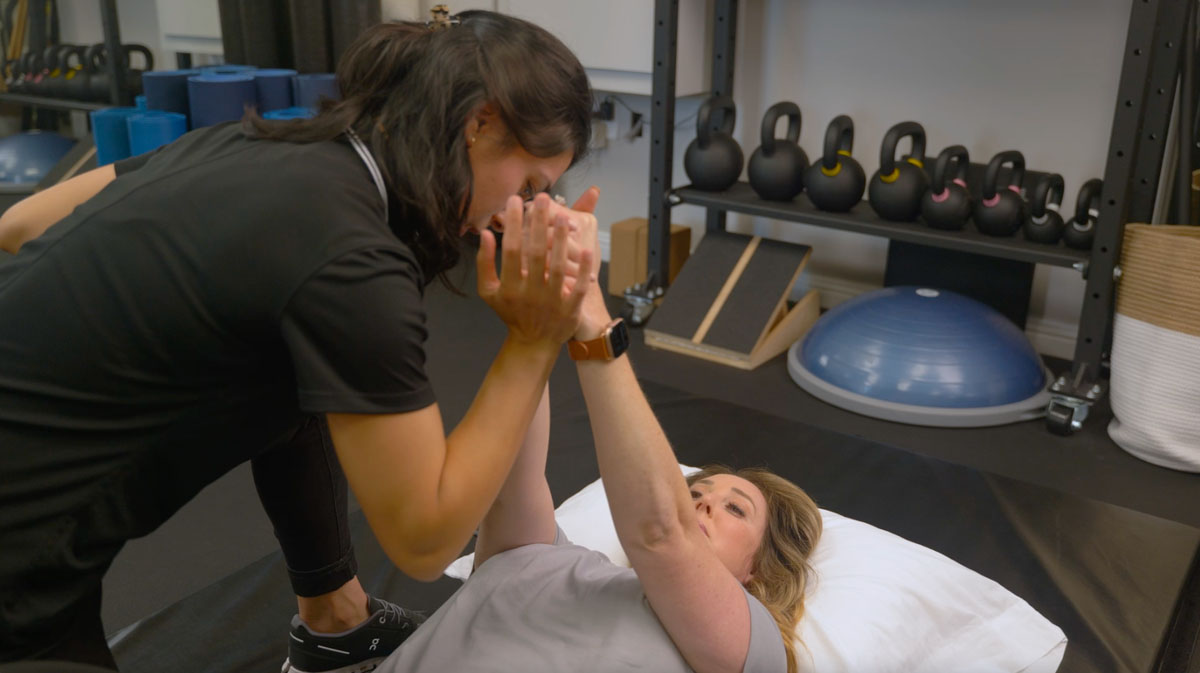Pelvic Health Physical Therapy The Way It Should Be…
One-Hour : 1-on-1 Care : Wholly Focused on You!
What is Pelvic Health Physical Therapy?
Many people struggle in silence as they deal with the debilitating pain, stress, anxiety, and sometimes embarrassing issues that accompany pelvic pain. This includes sexual dysfunction, incontinence, bowel health, impacts of pregnancy (pre & postpartum), and various other pelvic floor issues. If this is you, know that there is hope. We can help you restore function and optimize how you feel and live in your body.
The pelvic floor is not an isolated part of the human body. Research has consistently proven that it is an essential part of the health and wellness of the entire body. In addition to the obvious side effects of pelvic floor dysfunction, it can also cause or contribute to lower back pain, hip, knee, and lower extremity pain, breathing disorders, gastro-intestinal disorders, etc.


At IPA Physio we utilize Functional Manual Therapy® to assess and treat the whole body, not just the pelvis. You can rest assured that we will view whatever brings you to us through the holistic lens of your entire integrated movement system, not just an isolated part.
The pelvis (and the pelvic floor) is the connecting piece between the trunk and legs, and is an essential part of strength and movement. In order to perform activities such as pushing, pulling, lifting, walking, sitting, and standing, without pain and with sufficient strength, the pelvic floor needs to function efficiently with the rest of the body.
What We Treat
At IPA Physio, we spend one hour, one-on-one with each patient, which allows us to fully understand our patients’ problems and who they are as individuals.Our primary goal is to assist clients in reinstating optimal function of their bodies.

Urinary & Bowel Problems
Urinary Incontinence / Urgency / frequency
Difficulty urinating / urinary retention
Overactive Bladder
Constipation

Pain & Sexual Dysfunction
Sacroiliac / low back / hip pain
Pain with sex
Painful bladder / Interstitial Cystitis
Infertility
Athletic Pubalgia

Penile & Prostate Dysfunction
Pre and Post Prostatectomy Rehab
Chronic Pelvic Pain Syndrome / Chronic Prostatitis
Erectile Dysfunction
Peyronie’s Disease

Uterine / Ovarian Dysfunction / Women’s Health
Endometriosis
Painful menstrual cycles (dysmenorrhea)
Pregnancy and Postpartum Rehab
Pelvic Organ Prolapse
Peri-Menopause / Menopause / Post-Menopause
What to Expect at Your First Pelvic Floor Physical Therapy Visit
Initial Evaluation
Oftentimes people are anxious and don’t know what to expect from the initial evaluation for pelvic floor physical therapy. We make this process easy and relaxed. The initial evaluation appointment is all about you and getting to know who you are as a person. We take the time to hear your story.
Education is Key
It is important to understand your pelvic floor anatomy and how it all relates to your symptoms. We take time to discuss what these muscles are, why they’re important, and to explore the anatomy of the pelvis including muscles, ligaments, and connective tissues.
Thorough Assessment
An in-depth assessment of your pelvis and your whole body is performed to assess for all potential drivers of your pain and/or dysfunction. If you’re ready, an internal pelvic assessment is typically performed to map out your pelvic floor muscles and assess the resting tone of the muscles as well as your ability to contract and relax. If you would prefer to wait, no worries, we can postpone the internal assessment to a later treatment date and still get a lot accomplished.
Treatment
Our one-hour sessions will consist of various manual therapy techniques to address dysfunction at the mechanical level including soft tissues, joints, and viscera. Neuromuscular re-education is performed to establish efficient engagement and sequencing of muscular firing. Patient specific exercises are provided to address motor control.
Other diagnoses that can be affected by Pelvic Floor Dysfunction
The pelvic floor is essential for the:

Frequently Asked Questions
Discover Your Potential
Call IPA Physio OC now to schedule your free 15-minute phone consultation, or fill out the contact form and we will be in touch with you as soon as possible.
